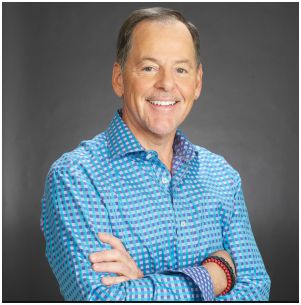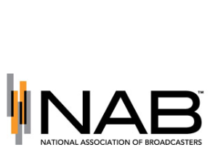
It’s been 60 days since Jay Stevens left radio — after decades of programming success — to take a break and recharge. When he hit the beach he had been the Senior Vice President of Programming at Radio One for over a decade. Is he getting the itch to come back? Is the golf scene getting old? We bugged Stevens day and night until he answered our questions about why he left the business. He gave in this week. Here’s what he had to day…
Radio Ink: You’ve been away from radio for a few months now, what do you miss the most?
Jay Stevens: I miss the action and the creative energy. This break has made me realize how much I love this business.
Radio Ink: What have you been doing?
Jay Stevens: I am staying immersed, but from an objective point of view. I am playing golf, traveling, doing some things around the house I never had time for and really having good quality family time. I am not going to lie, it is nice to wake up, make a latte, sit on the deck, and make my daily plans with no pressure. And I am still listening to a lot of radio, and following personalities and stations on social — can’t help myself.
Radio Ink: Why did you really leave? Did you burn out on radio?
Jay Stevens: The real reason I left was to take a break and recharge. I needed to assess whether I was burned out, or whether I really had enough. And I have found that I still love this crazy business, it’s one of the reasons I was put on this earth. Sounds heavy, but that’s real. So this time off has really energized me, I am in a great place!
Radio Ink: What would you say is your biggest accomplishment so far?
Jay Stevens: In radio I have had too many to just pinpoint one. I have been blessed to work with great people and I have been fortunate to have had some big wins. And there will be more!
Radio Ink: Explain how you’ve seen radio evolve: the good, the bad, the ugly. As an expert at content, is radio putting out high quality content today?
Jay Stevens: We need to be more innovative and create stronger, compelling content. Music and videos are everywhere — how do we stand out? What does radio stand for? It isn’t (fill in the DJ) saying, “Coming up in six minutes, tickets to the Monster Jam.” Or morning show promos with silly laughing and teasing the trivia game tomorrow morning at 7. That is another reason listeners are leaving, it is corny. The standards are higher, the competition is better, and there are too many choices. Compelling talent with something to say that connects, imaging that is creative, and award-winning and shorter commercial stopsets is a good start. Radio also is free, ubiquitous, urgent, and LOCAL. The streaming services would die for those attributes. And we need to market and brag about these qualities. In the era of shrinking revenue, marketing and promotional dollars have been reduced, this isn’t the time to do that, in my opinion. And how about having FUN? We need to get back to being edgy and fun. Several years ago, there was a Christian-formatted station in California that flipped to Pop. To create attention they stunted for a weekend and called the station “The Pole” and played all stripper music all weekend. Imagine the talk and buzz it created…and the outcry from the former Christian music listeners. And this was before social media. It put the new station on the map and was FUN. Maybe not so for everyone.
Radio Ink: As you listen to radio stations now, what are your thoughts as a listener?
Jay Stevens: It is really interesting to listen as a “listener.” I find myself talking to the radio and my wife calms me down. Outdated promos, DJs talking too much about nothing…missed details, drives me crazy. But I get it, PDs today are running multiple stations and don’t have the time to listen, be creative, and focus on those details. If we could only get back to having a programmer focused on one station, radio would be in a different place.
Radio Ink: Is radio playing too many commercials?
Jay Stevens: Imagine if all of the radio heads got together and held rates — or better yet, raised the rates. Put a premium on radio advertising. I am not a lawyer, but I think that could be collusion. But just think about that for a moment: revenue would be up, spot loads could drop, and the industry might be in a different place. And at the same time, create better commercials. Commercials that get attention and engage. Wow, what a thought! What a great dream!
Jay can be reached at [email protected], although he might be on the golf course, mowing his lawn, or yelling at your station for playing too many commercials.







Hi Jay. I just wanted to make sure you are the Jay Stevens I am thinking about because I know there are several DJs around the country using that name now. Are you the Jay Stevens who was on KKDJ and KIIS-AM/FM? If so, you are the one I am looking for. You have some very interesting comments. Thank you for your insight. I have been in radio off and on since 1979 and have seen a lot of changes. To be honest with you, you are probably the most influential DJ in my life. I grew up in La Mirada and listened to you on KKDJ and KIIS. I met you when I was in 7th grade. You were doing a remote from Knott’s Berry Farm and we talked for quite a while. I told you I wanted to be in radio. Well, I achieved that dream, in a lot of ways thanks to you and KKDJ. You even signed my ticket book. I still have that. I just wanted to say hi and thank you for your inspiration. It would be nice to meet you again sometime.
Note to Joseph:
While your comments ring true and would get little derogatory feedback from any aware and reasonable broadcasters, the issues have remained the same for decades:
1. Who is going to decide to take such steps? and,
2. How are they going to accomplish all these wonderful improvements in programming and the generation of commercial content? And by that, I mean SPECIFICALLY.
It is exactly at this point where the power shuts down, the screens go dark, the audio quits and the apologists holler “Reach!”.
Those of us who are campaigning for such improvements – some WITH specificity – are, pretty much, discounted and written off as members of the “dog lips” class.
Enjoy the break while you can, Jay. They never last long. All it takes is one bold manager. Cut inventory for a reason: fewer minutes to sell makes each minute worth much more. Rarity enhances value, but so does demand. Having fewer slots available means you can invest more time on each spot that runs. When you passionately appreciate the power of radio advertising, your enthusiasm will transfer to your customers. Treat each and every avail with the respect it deserves. Don’t allow anything on the air that interrupts your flow or destroys your brand. Hand craft each spot to make sure it is as effective as possible for your customers and as interesting as possible to your audience. Do it right and your audience will stick around for both the music and the commercials, because both are entertaining. If you build it, they will come. You can run your crappy spots to death on our dirt-cheap competitor, or you can make your cash registers ring with effective messages targeted to our loyal audience. Our listeners buy your product, and we can prove it. There aren’t many slots available, and that’s by design. So, you’ll pay a premium to get your message to our listeners, who are, by the way, your future customers. Everyone working at the station, from the engineer to the talent, from sales to management, even the traffic department, needs to be selling, and they need to know what they’re actually selling. It’s not radio time; it’s your advertiser’s products and your brand. Make every second count. Be as selective with the commercials as you are with the music, and make sure the commercials rotate just as perfectly as the songs!
Let me welcome Jay aboard the good ship “Wishful Thinking”.
Now he is in a position to consider the situation as a passenger rather than an officer… or as a galley slave.
The suggestions Jay supplies are repeats of those that have already been provided by any number of critics who still have some respect for the potential of the medium.
The harsh reality, however, includes an appreciation that if Jay was unable to implement his own suggestions from his last position, the likelihood he could institute some of the necessary improvements from off-site are, practically, grim.
Being correct and a buck, ninety-five….